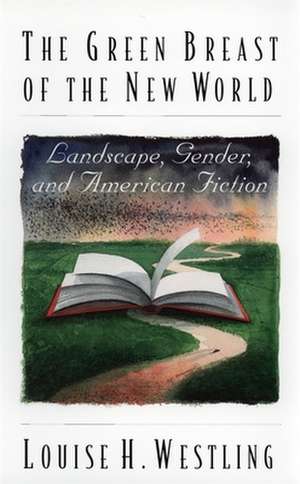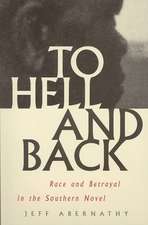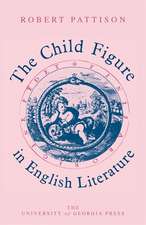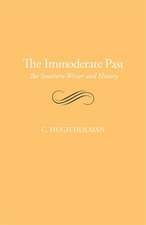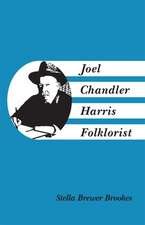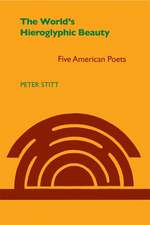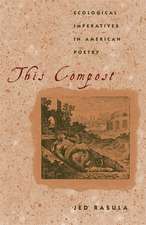Green Breast of the New World
Autor Louise H. Westlingen Limba Engleză Paperback – 30 sep 1998
Preț: 194.00 lei
Nou
Puncte Express: 291
Preț estimativ în valută:
37.12€ • 38.36$ • 30.88£
37.12€ • 38.36$ • 30.88£
Carte tipărită la comandă
Livrare economică 19 martie-02 aprilie
Preluare comenzi: 021 569.72.76
Specificații
ISBN-13: 9780820320809
ISBN-10: 0820320803
Pagini: 224
Dimensiuni: 143 x 229 x 17 mm
Greutate: 0.35 kg
Ediția:Revised
Editura: University of Georgia Press
ISBN-10: 0820320803
Pagini: 224
Dimensiuni: 143 x 229 x 17 mm
Greutate: 0.35 kg
Ediția:Revised
Editura: University of Georgia Press
Notă biografică
Textul de pe ultima copertă
In searching American literary landscapes for what they can reveal about our attitudes toward nature and gender, The Green Breast of the New World considers symbolic landscapes in twentieth-century American fiction, the characters who inhabit those landscapes, and the gendered traditions that can influence the figuration of both of these fictional elements. In this century, says Louise H. Westling, American literary responses to landscape and nature have been characterized by a puzzling mix of eroticism and misogyny, celebration and mourning, and reverence and disregard. Focusing on problems of gender conflict and imperialist nostalgia, The Green Breast of the New World addresses this ambivalence. Westling begins with a "deep history" of literary landscapes, looking back to the archaic Mediterranean/Mesopotamian traditions that frame European and American symbolic figurations of humans in the land. Drawing on sources as ancient as the Sumerian Hymns to Innana and the Epic of Gilgamesh, she reveals a tradition of male heroic identity grounded in an antagonistic attitude toward the feminized earth and nature. This identity recently has been used to mask a violent destruction of wilderness and indigenous peoples in the fictions of progress that have shaped our culture. Examining the midwestern landscapes of Willa Cather's Jim Burden and Ernest Hemingway's Nick Adams, and the Mississippi Delta of William Faulkner's Thomas Sutpen and Isaac McCaslin and Eudora Welty's plantation families and small-town dwellers, Westling shows that these characters all participate in a cultural habit of gendering the landscape as female and then excusing their mistreatment of it by retreating into a nostalgiathat erases their real motives, displaces responsibility, and takes refuge in attitudes of self-pitying adoration.
